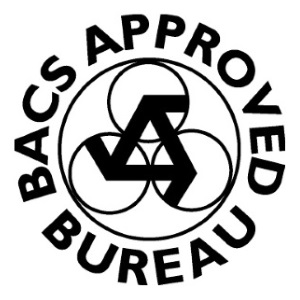How to start again after liquidation
Liquidation is a challenging but sometimes necessary step in the life of a business. When a company can no longer meet its financial obligations, liquidation becomes the solution — meaning that the business is closed down and its assets are sold off to repay creditors.
While liquidation marks the end of one chapter, it also offers directors an opportunity to learn, reflect, and start anew. This article explores how to start again after liquidation, including your responsibilities, potential risks and the opportunities available for a new beginning…
What happens during Liquidation?
The liquidation process begins when a company is deemed insolvent or unable to pay its debts. The first step is usually the appointment of a liquidator, who takes control of the company’s assets and begins the process of selling them to pay creditors. The liquidator will assess the company’s financial situation, identify any assets that can be liquidated, and ensure the orderly dissolution of the business.
As a director, your role during this time is crucial. You must cooperate with the liquidator, provide all required documentation, and assist in the process of winding up the company. The company’s debts will be prioritized, with secured creditors typically receiving payment first. Once the liquidator has completed this process, the company is formally dissolved.
It’s essential for directors to understand that the liquidation process often involves claims by creditors, which can include both secured and unsecured parties. The company will cease to exist once the liquidation is complete.
Director responsibilities post-Liquidation
Once a company has been liquidated, the responsibilities of the director do not end. There are legal and compliance obligations that directors must follow during and after liquidation.
One of the primary risks facing directors after liquidation is wrongful trading. If it is found that the company continued to trade when it was clear that it could not pay its debts, the director may be held personally liable for some of the company’s debts. This can result in financial penalties, director disqualification, and potential legal action.
Directors must also ensure that they properly fulfill any outstanding obligations to creditors and stakeholders. This includes ensuring that all tax returns are filed, employees are paid what they are owed, and all relevant legal documentation is submitted to the appropriate authorities. Failure to do so can result in legal consequences, including disqualification from holding directorial roles in the future.
Can directors start a new business?
After liquidation, you might be eager to start a new business. While there are no outright legal prohibitions against starting a new company, there are important restrictions that must be considered.
First, director disqualification is a risk that many directors face after liquidation. If a director is found to have acted negligently, fraudulently, or in a way that harmed creditors during the liquidation process, they may face disqualification from acting as a director for a specific period. In the UK, a director can be disqualified for up to 15 years under certain circumstances.
However, if the liquidation was handled properly, there is no reason why you cannot start a new business. You can form a new company, but it’s essential to ensure that there are no outstanding legal issues or liabilities from the previous business that could jeopardise the success of the new venture.
It’s also worth noting that you must be cautious when naming your new business. If the new company has a similar name or trades in a way that could confuse creditors or customers, this could lead to legal complications.
Learning from the Liquidation process
The liquidation process can be an educational experience for directors. Although it may feel like a failure, there are valuable lessons to be learned that can help avoid similar pitfalls in future business endeavors. Key lessons include:
- Financial management — One of the most common causes of liquidation is poor financial planning. You should learn from past mistakes and implement robust financial systems to ensure better cash flow management, budgeting, and forecasting in future businesses.
- Risk management — Liquidation often occurs when risks are not properly managed. You should assess your risk appetite, understand market conditions, and make proactive decisions to reduce potential risks.
- Leadership and decision-making — A strong, transparent leadership style can be the key to overcoming financial challenges. You can learn to make better decisions, communicate more effectively and create a stronger organisational culture.
Building a stronger future
Starting fresh after liquidation requires a strategic approach. To build a more successful future, consider the following tips:
- Evaluate and learn from past mistakes — Reflect on the reasons why your business failed and address those issues head-on. Identifying the root causes will help ensure they don’t repeat in future ventures.
- Build a strong team — Surround yourself with a reliable team of professionals, including accountants, solicitors and financial advisors, to ensure better decision-making and effective management of the new business.
- Focus on cash flow and profitability — Cash flow issues are often at the heart of liquidation. Ensure that your new business has a solid financial plan in place that focuses on profitability and managing expenses.
- Be mindful of debt — Avoid taking on excessive debt in the early stages of a new business. Carefully plan and only borrow when necessary, keeping the business’s financial health in mind.
Avoiding common pitfalls,like underestimating costs, failing to diversify revenue streams, or ignoring market trends, is crucial for building a business that thrives.
How we can help
Starting fresh after liquidation requires careful consideration, but with the right approach, it’s possible to turn the experience into a stepping stone for success. If you are a director looking to start a new venture after liquidation, get in touch with BV Corporate Recovery today to explore how we can help you navigate the process and build a stronger future.












